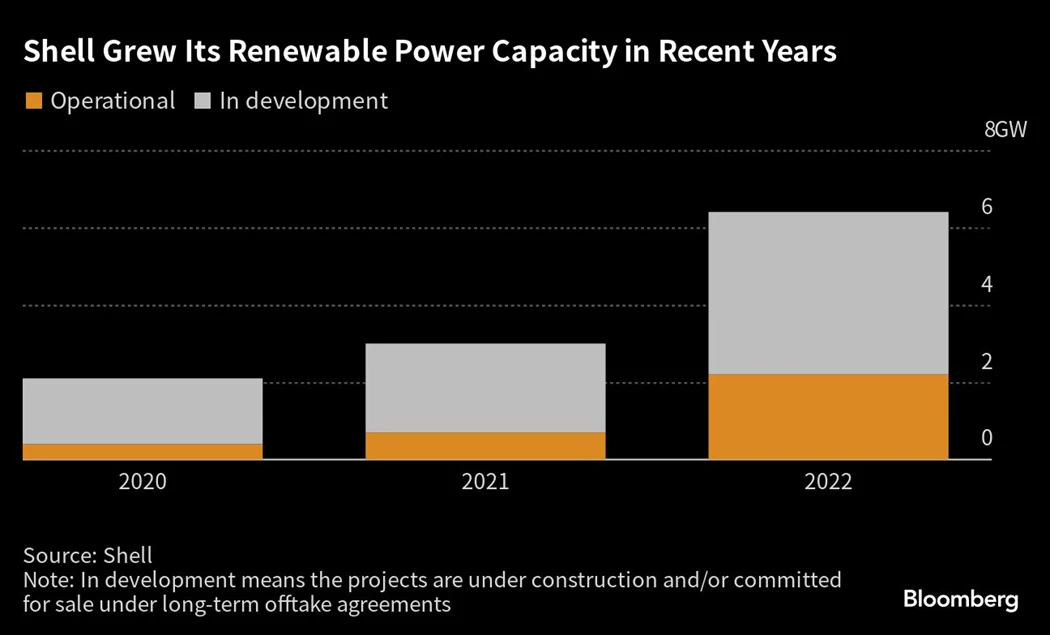Shell Explores Selling Stake in Renewable Power Unit
(Bloomberg) -- Shell Plc is exploring options for its global renewable power operations, including a potential stake sale to outside investors, people with knowledge of the matter said.
The UK energy giant is working with advisers to study a range of possibilities that could also include separating the business into a more independent unit, the people said. It’s approached a number of international investors to gauge their interest in buying a stake, according to the people, who asked not to be identified because the information is private.
The deliberations come as Chief Executive Officer Wael Sawan focuses the company’s investments on fossil fuels in a bid to increase shareholder returns and narrow the valuation gap with Shell’s US peers.
Discussions are still at an early stage, and there’s no certainty they will lead to a transaction, the people said. Shell may also consider introducing outside investors into some other operations such as its downstream assets, one of the people said.
A representative for Shell declined to comment beyond a capital markets day presentation in June, when the company flagged plans to divest certain power assets through 2025, but also make selective investments in the business.

If a deal does happen, it could be a significant shift in Shell’s green strategy. The oil major has spent more than two decades trying to figure out just how big of a player it wants to be in renewables. Over the years, some CEOs have set targets for low-carbon alternatives to oil and gas, only for their successors to focus more squarely on the fuels that drive most of the company’s profits, but also cause climate change.
It could also be seen as a concession to activist investor Dan Loeb, whose Third Point LLC fund built up a significant stake in Shell in 2021 and urged previous CEO Ben van Beurden to break off its natural gas and renewables operations into a standalone business. There is a precedent for such a move — Italian oil giant Eni SpA has separated its renewable-energy assets into a separate entity called Plenitude.
Under van Beurden, Shell rapidly grew its green power business and briefly sought to become the world’s biggest electricity producer. The company’s portfolio, which had 6.4 gigawatts in operation or development at the end of last year, includes offshore and onshore wind farms in Europe and the US. It recently acquired Indian solar developer Sprng Energy, Danish biofuels producer Nature Energy and American renewable power company Savion.
The renewable-power business has come under pressure as Sawan pursues what he’s called a “ruthless” approach to prioritizing returns, meaning the unit has to generate profits in addition to cutting the company’s carbon footprint. While Sawan said he will continue to invest in renewable power, he’s vowed to be more selective and only pursue projects that create sufficient value.
As Shell’s approach to green power has shifted at the top, some executives in the business have departed. Renewable-power boss Thomas Brostrom quit to pursue another job. Shell’s UK head of offshore wind, Melissa Read, also left the company.
©2023 Bloomberg L.P.





